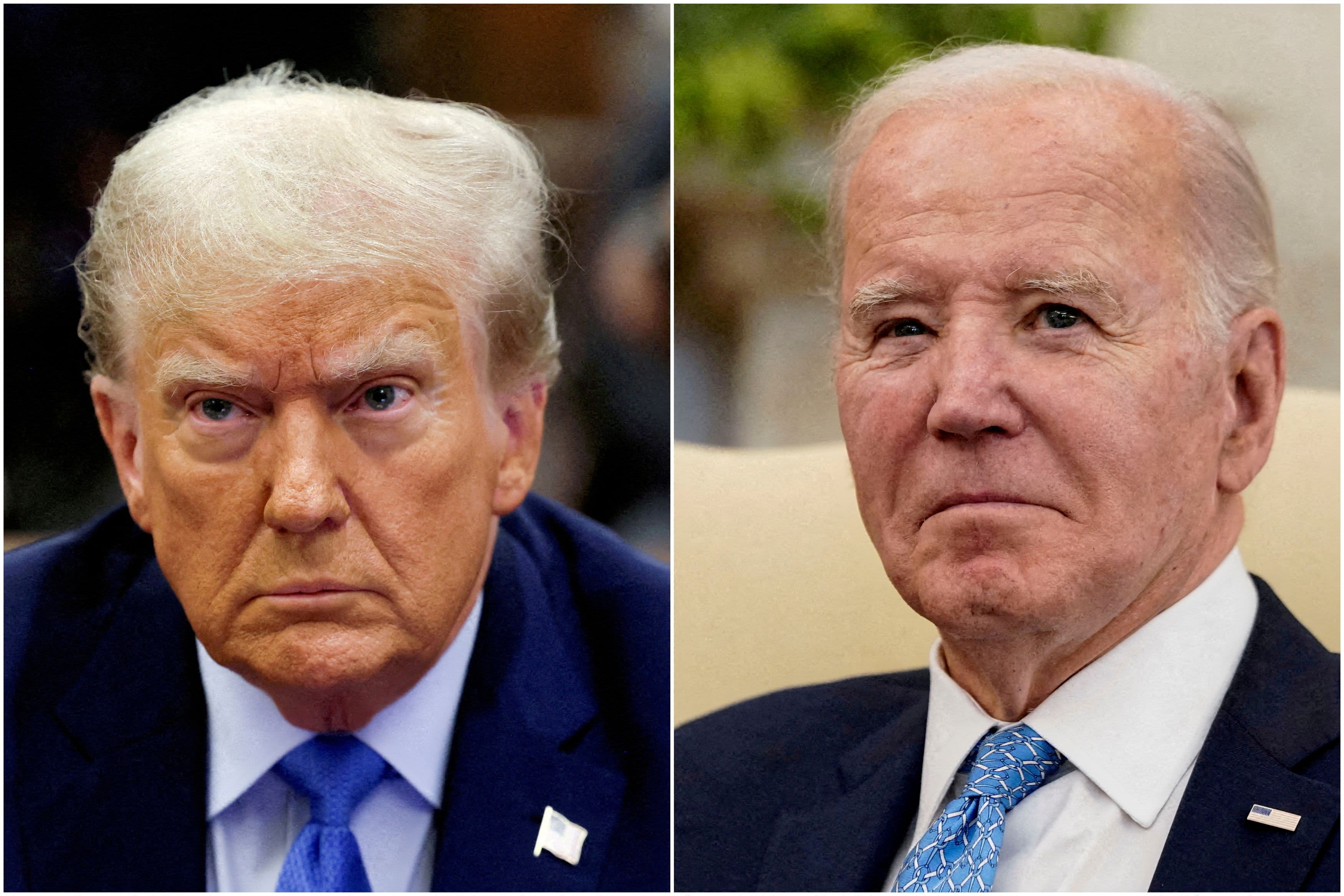
Combination picture showing former U.S. President Donald Trump and U.S. President Joe Biden.
Reuters
A majority of economists surveyed by The Wall Street Journal said former President Donald Trump‘s policies would be more likely to reignite inflation than President Joe Biden‘s would.
Of the 50 economists who answered questions about Trump and Biden in the survey, 28 of them said the risk of a return to high inflation levels was greater under the plans proposed by the Republican, than under those of the incumbent Democrat.
Eight of the economists in the WSJ survey said inflation would be worse under Biden than Trump. The other 14 said the difference between the two agendas would be negligible.
Economists and Wall Street analysts say that Trump’s hardline tariff proposals — a 10% tariff on all imports paired with a 60 to 100% China-specific rate — could increase producer costs that translate to higher consumer prices.
Trump also wants to crackdown on immigration, which could cut off the stream of immigrant workers who have buoyed the strong U.S. labor market without rekindling inflation.
Meanwhile, the several economists who saw Biden as the bigger inflation threat cited large spending packages.
Still, 51% of economists in the WSJ survey estimate that federal deficits will rise more under Trump, who has proposed making his first-term tax cuts permanent. Meanwhile, 22% of economists think the same for Biden, in part citing Democrats’ historically higher support for government spending.
The Biden campaign has already begun touting the new survey to support Biden’s case for reelection.
“While inflation is falling and manufacturing is booming under President Biden’s leadership, experts are sending a clear warning” about what Trump’s policy agenda could entail, said Biden-Harris 2024 spokesperson Sarafina Chitika.
The Trump campaign did not reply to a request for comment on the survey.
The survey released Thursday adds to a growing tally of economists, including 16 recipients of the Nobel Prize in Economics, who have previously called attention to what they see as the inflationary dangers of a second Trump term.
The survey, which was conducted between July 5 and July 9, was released a day after the monthly Consumer Price Index showed inflation declined 0.1% in June from the previous month.
This was the first time in over four years that the CPI showed a decrease month-over-month, an optimistic sign for a U.S. economy that has struggled to recover from the sky-high inflation rates in the wake of the pandemic.
The survey also comes as Biden’s political future at the top of the Democratic party‘s presidential ticket remains in doubt.
Since his startlingly weak debate performance against Trump in June, a growing number of Democrats on Capitol Hill, in the donor class and in some voter polls say they believe the president should bow out of the race, and the party should choose a new nominee.
Biden has so far rejected the drop-out pressure, defiantly pledging to stay in the race and trying to shift the conversation back to Trump.
In a high-stakes Thursday press conference, Biden went through his familiar warning signs about Trump’s proposed economic agenda, which includes a hardline universal tariff policy, tax cut extensions and pressuring the Federal Reserve to cut interest rates.
Friday’s new survey of economist would appear to bolster Biden’s argument. But many economists note that the president has less power over the economy than perhaps either candidate would like to admit.
Instead, much of the economy’s health can be attributed to a cocktail of policies and decisions by the president, Congress, independent government agencies and the Federal Reserve, along with external forces outside anyone’s control.

